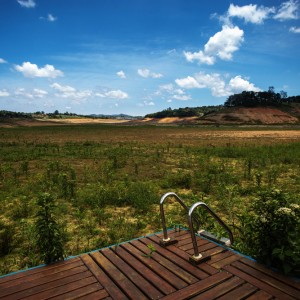The Stream, May 4: Jordan and Saudi Arabia Protect Aquifer Water
The Global Rundown |
Jordan and Saudi Arabia signed a deal to protect the Disi aquifer. Scientists found compounds used in fracking in Pennsylvania well water, United States rivers are recovering quickly after dam removals, and California water bonds are losing value. Pakistan charged its provinces with implementing climate change policy. Fjords trap large amounts of organic carbon globally.
“There is no direct replenishment of the aquifer via rain because of the lack of rain in its area and the high evaporation rate. The aquifer’s recharge process is only partial and is restricted to Um Sahem and Ras Al Naqab areas in Jordan.”–Hazem Nasser, Jordan Minister of Water and Irrigation, on a new deal between his country and Saudi Arabia to protect the Disi aquifer. The agreement regulates well drilling and water pollution. (Zawya)
By The Numbers |
0.61 percent Decline in California water and sewer bond values in April, the second drop in three months. Investors are worried that water restrictions due to the drought could hit water utility revenues. The Wall Street Journal
1,000 dams Number removed in the United States in the past 40 years. Rivers are quickly recovering after dam removal, a USGS study found. USGS
Science, Studies, And Reports |
A compound used in hydraulic fracturing was found in the drinking water wells of three Pennsylvania homes, according to a study published in the Proceedings of the National Academy of Sciences. The researchers say the contamination is likely from natural gas wells in the area, though the industry disputes this conclusion. The New York Times
Fjords play an outsize role in trapping organic carbon that is washed into the ocean by rivers, a study published in Nature Geoscience found. The fjords are effective traps for the carbon because of their depth and low oxygen levels. Reuters
On The Radar |
Pakistan recently created provincial committees to jumpstart action on climate change—focusing especially on water conservation, resilient infrastructure, and adaptable crops—that has been stalled at the national level. The committees must submit preliminary plans to the government by tomorrow. Reuters
A news correspondent for Circle of Blue based out of Hawaii. She writes The Stream, Circle of Blue’s daily digest of international water news trends. Her interests include food security, ecology and the Great Lakes.
Contact Codi Kozacek






Leave a Reply
Want to join the discussion?Feel free to contribute!